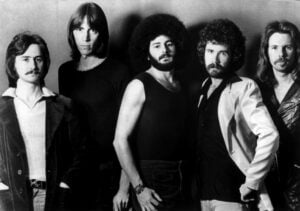Legendary Musician Quincy Jones Passed Away At 91

via The Late Show with Stephen Colbert / Youtube
Quincy Jones, a true musical genius, passed away at his home in Bel Air, California, on November 3, 2024, at 91. Known for his incredible contributions across jazz, soul, funk, and pop, Jones was a force in the music world, producing some of the biggest albums of the century, including Michael Jackson’s iconic Off the Wall, Thriller, and Bad.
His family shared the news of his passing with heavy hearts, stating:
“Tonight, with full but broken hearts, we must share the news of our father and brother Quincy Jones’ passing. Although this is an incredible loss for our family, we celebrate the great life that he lived and know there will never be another like him.”
Quincy’s Touch With Musical Genres
Jones had a music career that spanned an amazing seven decades which also touched nearly every genre. From big-band jazz to rap, his expertise as a trumpet player, composer, arranger, producer, and conductor set him apart as a unique talent. Although his groundbreaking work with Michael Jackson launched him to fame, Jones had already established an impressive legacy in jazz and early pop.
He studied with the renowned classical teacher Nadia Boulanger, arranged records for Ray Charles, and even conducted Frank Sinatra’s band. Few musicians can claim such versatility and success in so many areas. In a 2017 interview with Rolling Stone, Jones spoke about his creative restlessness, saying:
“You gotta hope you can make all the mistakes you can so you learn. I made all the mistakes. All of ’em.”
Making Music with Legends
Jones also had an eye for recognizing great talent. He worked with a roster of artists some of which include Betty Carter, Dinah Washington, Sarah Vaughan, Ella Fitzgerald, Little Richard, Aretha Franklin, and many more. His ability to sift through hundreds of demos to find the perfect song for an artist was legendary. Once he chose a tune, he brought his extensive musical knowledge to the recording process.
Stephen Bray, a producer for Madonna in the ’80s, noted:
“Normally you put three-part background vocals on the track, and it sounds good… If you listen to the backgrounds on [Jackson’s] Bad, you’re getting not only those but also sevenths, ninths, and elevenths. In less experienced hands, it would sound like mud, but they managed to put in five-note chords. They got background vocals that sound like nothing we had ever heard before in that context.”
Jones’s forward-thinking approach to production set him apart from many of his contemporaries. While some producers settled into a familiar sound, Jones was always evolving. “We had the first Fender Bass in 1953,” he told Rolling Stone. “Without a Fender Bass connected to an electric guitar from 1939, there’d be no rock & roll or Motown.” His willingness to embrace new technology helped him create timeless hits that still resonate today.
Tough Start in Life
Despite his incredible success, Jones’s early life was marked by hardship. Born on March 14, 1933, on the South Side of Chicago during the Great Depression, he faced significant challenges. His mother struggled with mental illness and was institutionalized when he was young. As a result, he and his brother Lloyd spent time living in a rundown shack in Kentucky before moving back to Chicago and eventually following their father to Washington State.
According to his autobiography, Q, Jones’s love for music began almost by accident. He discovered a piano while sneaking into a recreation center and was immediately captivated. “That’s where I began to find peace,” he wrote. “I was eleven. I knew this was it for me. Forever.” This pivotal moment set him on a path to pursue music with unwavering passion.
Jones immersed himself in music, singing in acappella groups, sneaking into local clubs to hear musicians, and begging jazz trumpeter Clark Terry for lessons. By age 13, he was already writing arrangements for jazz big bands, demonstrating his early dedication to the craft.
Rising Through the Ranks
After World War II, Jones’s family moved to Seattle, where his musical journey accelerated. At 14, he befriended Ray Charles and soon began playing in various bands. “We had a regular routine on weekends,” he recalled. “From 7 to 10, we’d workplaces like the Seattle Tennis Club playing pop tunes… then from ten to one in the morning we got loose at black joints … playing R&B tunes… for the strippers.” This blend of experiences exposed him to diverse musical styles and set the foundation for his future success.
Jones’s talent caught the eye of jazz great Lionel Hampton, who invited him to join his touring band at just 15. However, Hampton’s wife insisted that Jones finish school first. After a semester at Seattle University, he moved to Boston to attend the Berklee College of Music (then called Schillinger House) and soon joined Hampton’s band, touring the U.S. and Europe.
His skills as an arranger and composer quickly garnered attention, leading to collaborations with jazz legends like Cannonball Adderley, Dizzy Gillespie, Count Basie, Sarah Vaughan, and Dinah Washington. In 1957, he moved to Paris to work for Barclays Records, where he had the opportunity to arrange music with strings—a privilege not often afforded to Black arrangers in the U.S.
The Sinatra Connection
While in France, Jones studied under the great Nadia Boulanger, who had taught many of the leading composers of the time. His talent caught the eye of Frank Sinatra, who recruited him to conduct a 55-piece orchestra during a performance in Monaco. Jones and Sinatra would go on to collaborate again in 1964 when Jones conducted and arranged Count Basie’s band for Sinatra’s Las Vegas shows.
During the early ’60s, Jones worked as an A&R representative at Mercury Records. There, he began to make waves in the pop music scene, producing hits for Lesley Gore, who became a pop sensation from 1963 to 1965. Jones also got into film and television, creating musical scores for films like In Cold Blood and In the Heat of the Night. Despite facing discrimination in Hollywood as a Black composer, he stood out and made significant contributions to the industry.
The Turning Point
In 1974, Jones faced a life-threatening health crisis when he suffered an aneurysm that required two brain surgeries. This medical emergency forced him to shift his focus away from trumpet playing, as the physical strain could jeopardize his health. Instead, he turned his attention to producing and recording albums that blended jazz, funk, and soul.
During this time, he collaborated with renowned artists like Minnie Riperton, Al Jarreau, and Luther Vandross, creating lush, beautifully arranged records. One of his significant projects brought him into close contact with Michael Jackson: the film adaptation of The Wiz, which starred Diana Ross and Jackson. Their friendship blossomed on set, leading Jones to propose a collaboration as Jackson embarked on his solo career.
The Jackson Years
Initially, Epic Records was hesitant about Jones working with Jackson. They thought, “Quincy Jones is too jazzy, and has only produced dance hits with the Brothers Johnson.” However, Jackson insisted on partnering with Jones, and the label ultimately relented. This collaboration birthed one of the most successful musical partnerships in history.
Jones produced Off the Wall, Thriller, and Bad, which collectively produced an astounding 17 Top 10 hits, including nine number ones, and sold over 50 million units in the U.S. alone. The fusion of cutting-edge technology and Jones’s musical expertise created timeless classics. “It was this convergence of the most advanced technology in the known universe at your disposal mixed with old-school musicality,” noted Madonna collaborator Stephen Bray.
At the same time, Jones was also producing hits for other artists, including George Benson’s Give Me the Night, which remains a dance floor favorite, and Donna Summer’s self-titled album, which featured hits like “Love Is in Control (Finger on the Trigger)” and “State of Independence.”
He even managed to corral an all-star cast of artists for the charity single “USA for Africa: We Are the World,” featuring everyone from Paul Simon to Bruce Springsteen. Under his own name, Jones released The Dude, an album that scored three Top 40 hits and helped launch the careers of James Ingram and Patti Austin.
Leaving a Lasting Legacy
Despite their success, Jones and Jackson parted ways after the Bad album, as Jackson sought to explore hip-hop influences and wanted to work with younger producers. However, Jones continued to thrive, producing rising R&B stars like Tevin Campbell and Tamia and scoring hits as late as 1996 with “Slow Jams,” featuring Babyface, Tamia, and Barry White.
Throughout the ’90s, he also co-founded the magazine Vibe, which focused on Black musicians, aiming to create a platform that highlighted their contributions to the music industry.
Jones had a knack for sharing his wisdom in a way that resonated with others. He famously described music as “emotional architecture” and offered memorable insights like, “Just make music that gives you goosebumps.” He believed that “a great song can make the worst singer in the world a star; a bad song can’t be saved by the three greatest singers in the world.” His words made it seem like his achievements were effortless, but the truth is, they were the result of immense talent and hard work.
In 1991, Jones received the Grammy Legend Award, one of the highest honors from the Recording Academy, recognizing his profound impact on the music industry. He was also awarded the Grammy Lifetime Achievement Award and was inducted into the Rock and Roll Hall of Fame in 2013. His legacy will continue to inspire generations of musicians and fans alike.
Remembering the Legend
As the world mourns Quincy Jones’s death, his extraordinary contributions have become a celebration of music and culture. His ability to connect diverse musical styles and his relentless pursuit of excellence shaped the sound of modern music. He will be remembered for his iconic hits, pioneering spirit, and ability to bring people together through the universal language of music.













